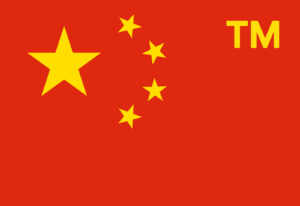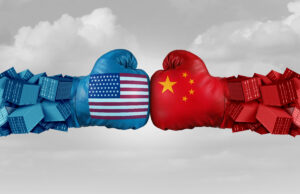China Does Not Have an Attorney-Client Privilege
In the United States and much of the rest of the world, private communications between a lawyer and their client are protected from disclosure without the client’s consent. This fundamental protection does not exist in China.
The Critical Risks of No Attorney-Client Privilege in China
Confidentiality is the foundation of a trusting relationship between lawyers and clients. American and European lawyers are obligated to keep client information strictly confidential. In contrast, Chinese lawyers are only prohibited from disclosing national secrets, clients’ trade secrets, and the privacy of parties learned during representation
1. Real World Risks of No Attorney Confidentiality
Here are some concrete examples where companies have paid a stiff price for not accounting for how lawyer-client issues differ across borders.
Several years ago, two of our international lawyers met with in-house counsel for a large Korean chaebol. The in-house counsel wanted advice on a complicated, multi-party breach of contract case involving several American high-tech companies. During the meeting, he handed us a two-page letter written by an American attorney on behalf of his client to the Korean lawyer representing the American company in Korea.
The letter outlined the American company’s settlement strategy, stating a willingness to settle for $600,000 but instructing the Korean attorney to start negotiations at $1.4 million.
We initially thought the American company mentioned in the letter was aligned with our Korean client. After re-reading the letter multiple times and expressing our confusion, the Korean in-house lawyer, who held an American legal degree, clarified that the American company was actually opposing the chaebol in the case.
The American company in the letter was opposing the chaebol, and the letter detailed the American company’s settlement strategy. The American company’s Korean attorney had shared this confidential letter with the chaebol’s in-house lawyer, who was a ‘big brother’ figure from law school and had been seeking to secure legal work from the chaebol.
We know of multiple instances where Western companies have overpaid or been cheated because their lawyers revealed confidences to the other side. This is common in joint venture and large procurement deals. Essentially, this is similar to a kickback scheme but involves your own lawyer.
The idea that lawyers must keep their clients’ secrets has been a rule in the Western world for hundreds of years. The privilege fundamentally informs American company expectations of the legal profession, to a degree that creates dangerous assumptions when dealing with lawyers in jurisdictions outside the common-law tradition, where the privilege might not be as extensive—or may not exist at all.
For example, under Washington State law, a lawyer cannot be forced to reveal client communications without the client’s consent. The U.S. Supreme Court has emphasized that justice requires people to get expert advice from lawyers, which they will only seek if they trust their lawyers to keep their secrets.
While the U.S. Supreme Court’s reasoning is compelling, it is not universal. In China, lawyers have a general duty of confidentiality (Art. 83, Law on Lawyers), but they can testify against their clients in civil cases. Though Chinese criminal defense attorneys can choose to maintain confidentiality (Art. 46, Crim. P. Law), this discretion does not extend to other lawyers. For instance, a lawyer defending a client in a tax evasion case can choose not to testify against them, but other lawyers involved do not have this protection.
Beyond legal considerations, practical issues arise. American lawyers fear disciplinary action, including losing their license to practice law. While Chinese lawyers are also subject to oversight from the government and bar authorities, this oversight is usually driven by political concerns rather than by the goal of protecting the client.
Chinese lawyers are less likely to fear consequences for revealing confidential information, especially if the client is a foreign company, particularly an American one. This puts you in a vulnerable position if your Chinese lawyer benefits from disclosing your information. They might share your patent application with another client, tip off your competitor before filing your trademark, or reveal your willingness to pay a higher price per widget. Worse, if your Chinese lawyer is in trouble with authorities, they might report your company’s missteps to curry favor. These scenarios are real and dangerous.
2. Precautions for Companies
Given the limitations of attorney-client privilege in China, consider these options to mitigate risk:
- Engage Foreign-Licensed Lawyers in China: Law firms with lawyers licensed in other jurisdictions, such as the U.S. or the UK, can offer greater confidentiality protection due to the stricter attorney-client privilege rules applicable in those countries.
- Craft Clear Confidentiality Agreements: Entering into a comprehensive confidentiality agreement with any Chinese lawyers you engage can help establish clear expectations regarding the handling of confidential information. This may provide you with marginally increased confidentiality protections.
- Limit Information Sharing with Chinese Counsel: When working with Chinese counsel, practice a “need-to-know” basis when sharing confidential information. Only disclose what is absolutely essential for your particular matter.
You do not want to discover that your communication is not privileged after disclosing confidential information. Before working with lawyers in other countries, you should solicit help from an experienced international lawyer in your own country or another country with attorney-client protections.
Conclusion
The lack of a comprehensive attorney-client privilege in China, particularly in light of the current geopolitical climate, presents a significant challenge for foreign companies seeking legal counsel. This blog post aims to raise awareness of this critical issue and equip companies with strategies to mitigate risk.

























